With brick kilns in Telangana set to close for monsoon, migrant laborers suffer amid lockdown
By Dheeshma Puzhakkal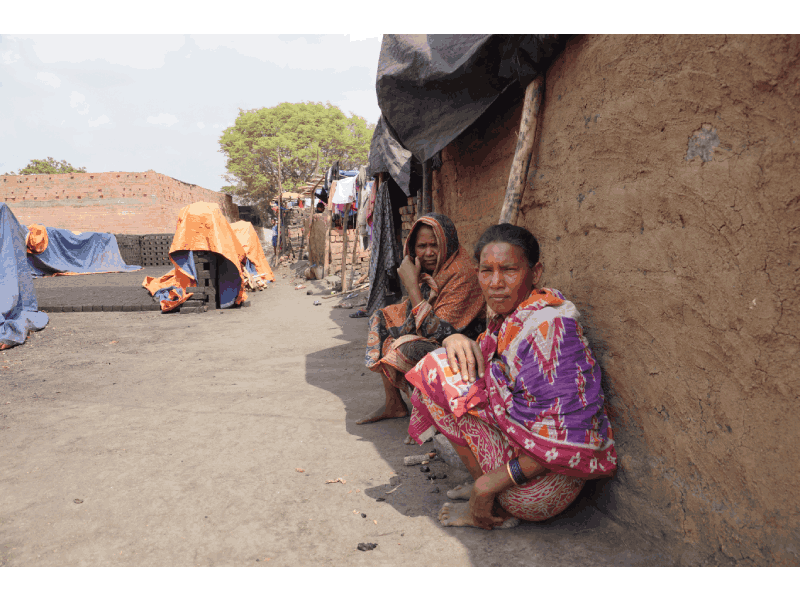
Hyderabad: “We know there is a pandemic and the whole country is in lockdown. But nobody told us about the e-pass. We didn’t know there are trains,” said a surprised Giridhari, a migrant laborer from Odisha to this correspondent.
Like Giridhari, there are thousands of migrant laborers from various parts of the country, especially from Odisha working in more than 800 brick kilns in Telangana state.
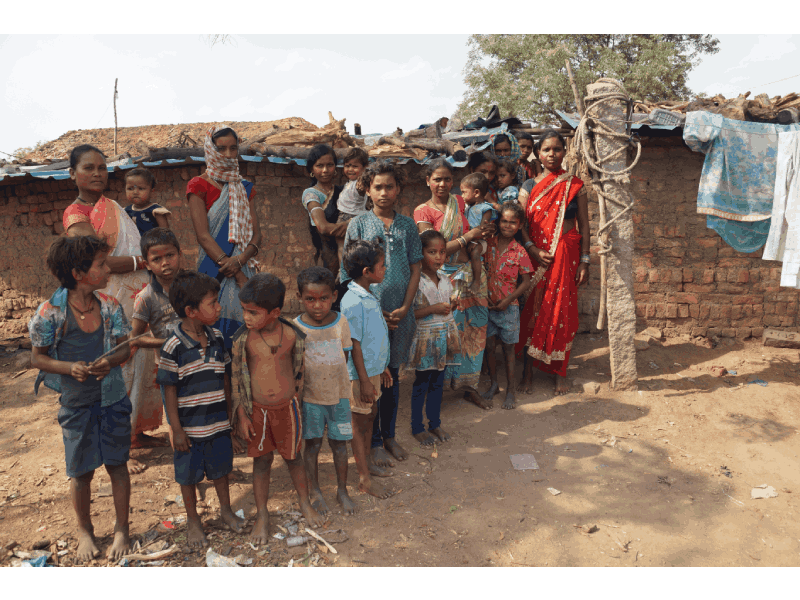
Away from the hustles of Hyderabad city, these brick kilns are largely situated in rural areas of the state. With monsoon approaching, the contract of these seasonal laborers is ending by the end of May. All that they know is their weekly income of Rs 400 will stop by the end of this month and their contractors are not taking their calls.
“We are seasonal workers. Brick kilns function from November to May end. We came here in November. Our work will get over in 15 more days. We don’t know what we will do after that. Owners are asking us to get in touch with the contractors who brought us here. But they are not taking our calls,” says Giridhari from Balangir district Odisha.
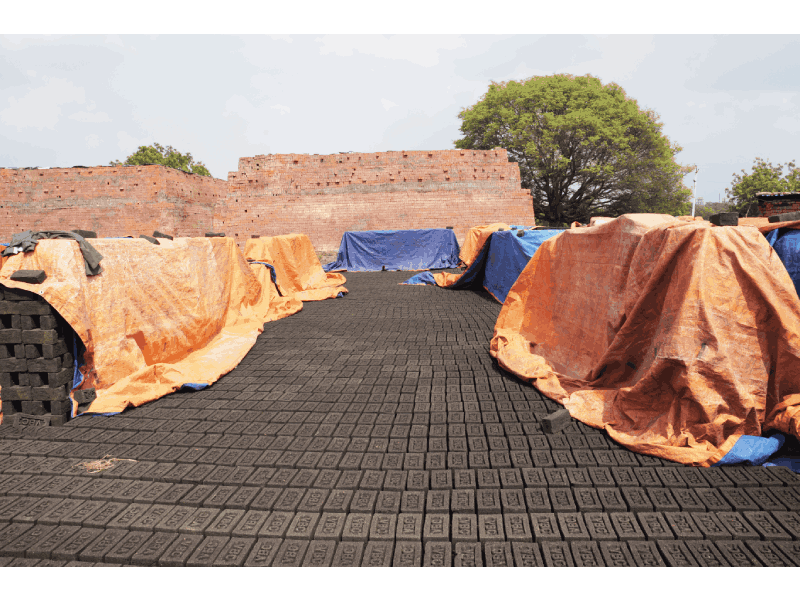
Conservative estimates reveal that there are around 4,800 migrant workers from Odisha working in 46 brick kilns in Jinnaram and Gummadidala Mandals of Sangareddy district. They were given an amount of Rs 35,000 before boarding the train to Hyderabad in November. Later, every week they are paid between Rs 300- 400 as a weekly allowance. Since lockdown, the laborers said they are running out of money.
“Even if we don’t report to work because of some illness, they cut our allowance. We used to make our daily porridge with pakka rice and that used to be cheap. But after lockdown, the rice is not available here. We have to buy some sort of katcha rice which is new to us and is costing more. For every essential commodity, the shops are charging us extra. Because of lockdown, we are unable to purchase vegetables and foodgrains from the weekly markets. The police are shooing us away,” said one of the laborers.
Telangana Labour Department data reveals that there are 801 registered brick kilns across the state. Thousands of migrant laborers are employed in these kilns. Some brick kilns have continued to operate clandestinely despite the lockdown.
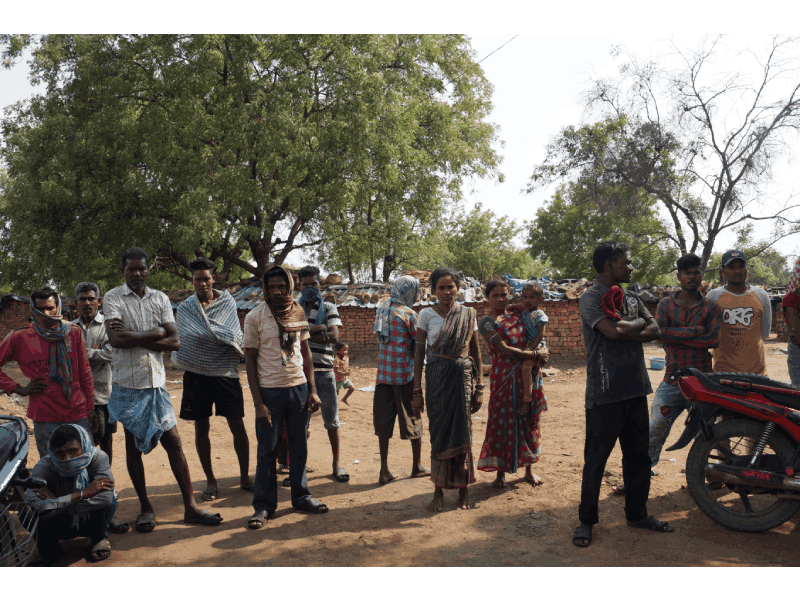
Commissioner of Labour Department Ahmed Nadeem said they have not received any complaints so far. “If they have to go home, they are supposed to contact two nodal officers that the Telangana government has appointed for stranded citizens,” he told Newsmeter.
When NewsMeter approached one of the Nodal officers Sandeep Kumar Sultania IAS, he repeated the same lines that the laborers have not come forward seeking help. "No labourer from brick kilns has approached our office so far. We have officials appointed to look into the requirements of migrant workers. The need full will be done as per their requirements," he said.
Second Nodal officer, ADGP Jitender Reddy was not available for comments.
Varsha Bhargavi, a labor rights activist told Newsmeter that the laborers are now at the mercy of the state government. “In the 46 brick kilns in Jinnaram and Gummadidala Mandals of Sangareddy district, almost 316 children between the ages of 7 to 14 live on the brick kiln premises. If you notice the e-pass registration site of the Telangana government is in English and Telugu. How do you expect the inter-state laborers to understand either of the languages,” she said.
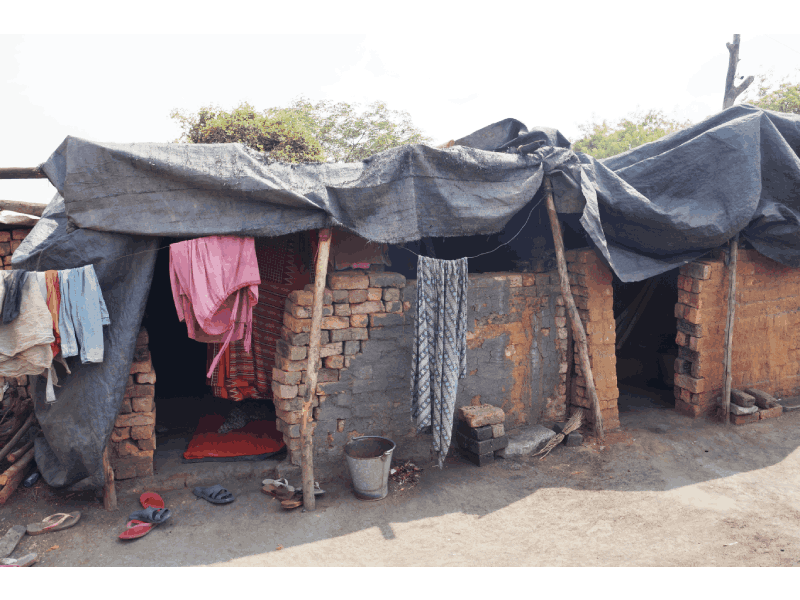
Varsha said it is a form of bonded labor that is being practiced in Telangana. “They start making bricks from 3 a.m. and finish the work by 10-11 a.m. Again after a break, again they start work at 4 p.m. and continue making bricks until midnight. The owners of these brick kilns have paid the wage in advance. Also, he pays a number of middle-men who are involved in transporting the laborers to the state. This money is also deducted from the wages given to the labourers,” she said.
However, after lockdown the owner insisted these laborers should work because he has already paid them in advance. According to Section 15 of the Inter State Migrant Workers Act, it is the responsibility of the contractor or the employer to pay for the travel. They are also supposed to be paid wages for the time spent on travel, which is equal to wages for 3 working days if it is Odisha.

(Image credit: Varsha Bhargavi)